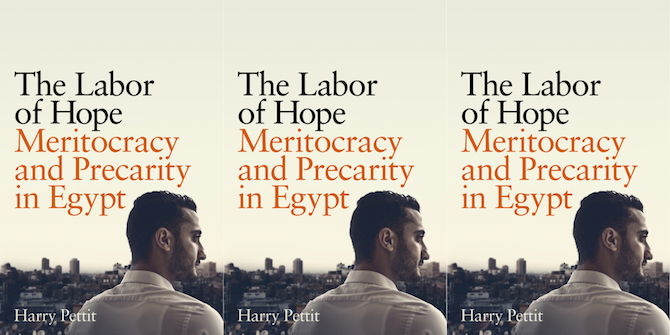In his article “Middle East Masculinity Studies” featured in the Journal of Middle East Women’s Studies (2011), Paul Amar delves into a critical examination of prevailing discourses on Middle Eastern masculinities. He calls for a reinvigoration of critical masculinity studies in the region, stressing the importance of considering various factors such as state security apparatus, neoliberal economic changes, societal expectations, and racialization processes that impact men both locally and globally.
Building upon Amar’s call to action, Harry Pettit’s book “The Labour of Hope: Meritocracy and Precarity in Egypt” delves into the intricate fabric of post-revolution Cairo and its effects on men, particularly those from the middle class. Pettit skillfully navigates the interconnectedness of local politics, economics, and social dynamics within the broader landscape of global economic politics. Through engaging with educated Egyptian men aspiring for economic stability and social progression, Pettit uncovers the layers of exploitation and challenges faced by many in the Global South under the guise of development and advancement.
The book elucidates how young Egyptian men are lured into the dream of achieving middle-class status through hard work and education, only to confront the harsh realities of political repression, economic inflation, and social pressures. Despite their efforts to cope with these challenges through various means like participating in social activities and seeking romantic relationships, Pettit showcases the underlying thread of hope that propels them forward.
Examining the systemic barriers to upward mobility, Pettit sheds light on the struggles faced by young men in Egypt in navigating English language requirements, educational credentials, and networking opportunities. The book underscores the perpetuation of class hierarchies through programs that promise advancement but often fall short, reinforcing the notion that individual shortcomings rather than systemic flaws are to blame.
These challenges are further exacerbated in the realm of call centres, where young Egyptian men grapple with feelings of frustration and failure due to a lack of skills and qualifications needed for upward mobility. Despite these hurdles, Pettit emphasizes the role of hope in sustaining their engagement with low-paying and monotonous jobs, perpetuating a cycle of emotional labor and detachment.
The book also explores the influence of external sources such as self-help literature, media representations, and societal expectations on shaping the aspirations and outlook of young Egyptian men. From the pressures of establishing a stable family life to the allure of emigration for economic prospects, Pettit illuminates the complexities of navigating personal and societal expectations in a constantly shifting global landscape.
In weaving together narratives of individual struggle and societal constraints, Pettit’s work transcends its focus on Egyptian masculinities to offer a profound commentary on the broader implications of global economic forces and politics on individuals. It serves as a poignant reminder of the enduring challenges faced by many in the pursuit of hope and progress amidst the complexities of modern society.
